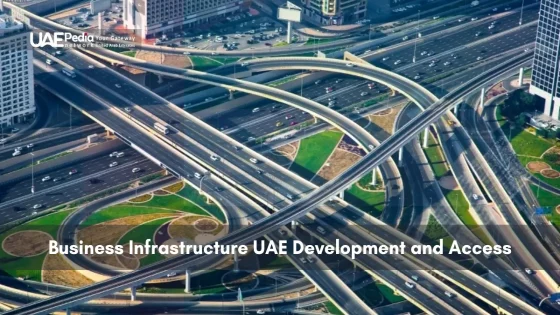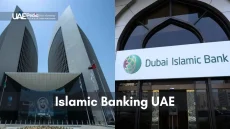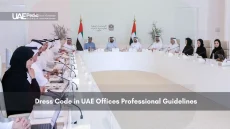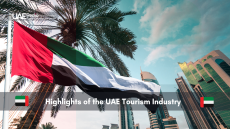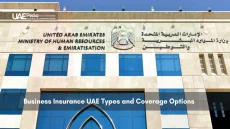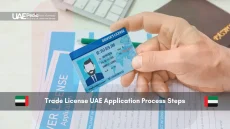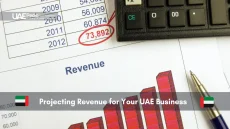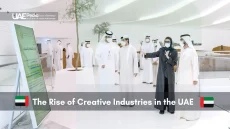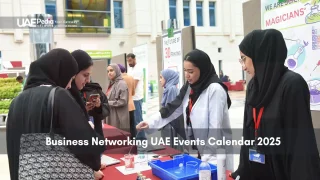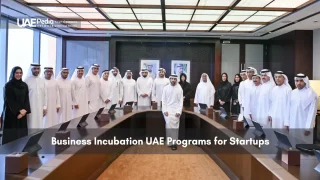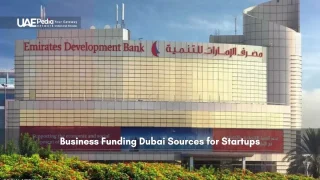What if trust – not profit margins – held the key to thriving organizations? Gensler’s 2025 Global Workplace Survey reveals that UAE employees prioritize purpose, flexibility, and creativity in their work environments, emphasizing the importance of transparency and trust in leadership. This shifts how we view success in a market where tradition and innovation share office space.
Navigating today’s business landscape here means blending global strategies with local wisdom. Ethical practices aren’t just buzzwords – they’re woven into the fabric of high-performing teams. Consider this: Companies emphasizing integrity experience significantly lower turnover rates, proving that values drive results.
The UAE’s unique environment demands leaders who listen as much as they guide. Open communication channels create workplaces where diverse perspectives fuel smart decisions. It’s not about rigid hierarchies but adaptive collaboration – think majlis-style discussions meeting agile workflows.
We’ll explore how:
- Cultural fluency strengthens team cohesion
- Integrity becomes a competitive advantage
- Transparency directly impacts market innovation
- Traditional values shape modern management
Embracing Multiculturalism in the UAE Business Environment
Picture a typical Dubai workday: Mandarin mingles with Hindi during coffee breaks, while Emirati hospitality shapes client meetings. Over 200 nationalities collaborate here daily – a living lab of global business practices. This fusion creates opportunities (and challenges) for teams aiming to thrive.
Blending Tradition with Modern Business Strategies in the UAE
Modern skylines might dominate, but traditional values anchor decisions. Take the majlis – a communal space for open dialogue. Forward-thinking companies adapt this concept into brainstorming sessions, blending egalitarian discussion with data-driven strategies. A 2023 Bayt.com survey found that integrating local customs into workflows significantly enhances employees’ perception of their value within the company.
Measuring the Effects of Cultural Awareness on Business Performance
Mercer’s UAE workforce study highlights that teams with culturally-aware managers resolve conflicts 42% faster, and companies with high diversity metrics attract 2.3 times more top talent.
- Teams employing cultural awareness tools resolve conflicts 2.1 times faster, according to a study by People Partners.
- 73% of professionals prioritize employers who invest in cross-cultural learning
- Companies scoring high on diversity metrics attract 2.3x more top talent
Smart leaders turn this diversity into fuel for growth. One tech startup halved onboarding time by pairing new hires with “cultural buddies” from different backgrounds. Their secret? Treating communication as a muscle to strengthen, not a box to check.
This isn’t about memorizing etiquette rules. It’s building work environments where a Filipino accountant feels comfortable suggesting Emirati-inspired financial models, or an Egyptian marketer reshapes campaigns using Bedouin storytelling techniques. When traditions and fresh perspectives dance together, innovation follows.
Developing Culturally Sensitive Leadership Approaches
Imagine a team meeting where decisions flow as smoothly as karak chai – that’s the power of cultural fluency. Forward-thinking organizations now bake awareness-building into their DNA, transforming potential friction into creative sparks.
Custom workshops tailored to specific cultural contexts are more effective than generic manuals in enhancing cultural fluency among teams. Ref.: “SC Training (2023). Cross-cultural training for a diverse workplace. SC Training.” [!]
Nuance Navigation 101
Custom workshops work better than one-size-fits-all manuals. A Dubai tech firm redesigned onboarding with culture-specific role-plays – think negotiating deadlines with German precision or brainstorming with Emirati consensus-building. Result? 89% faster project launches across mixed teams.
| Training Focus | Collaboration Boost | Trust Growth |
|---|---|---|
| Decision-making styles | +34% | +28% |
| Communication preferences | +41% | +33% |
| Conflict resolution tactics | +39% | +45% |
Goals become compasses when everyone’s map aligns. One logistics company slashed email misunderstandings by 72% after implementing “culture check” templates. Managers now spend 20% less time clarifying requests – that’s extra hours for strategic chats over dates and coffee.
Try this tomorrow: Start meetings with quick local idiom exchanges. It’s not about perfect pronunciation – it’s showing effort to connect. As one Indian engineer shared, “When my Emirati boss greeted me with ‘Namaskar,’ I knew our ideas would be heard.”
Effective Leadership Strategies for UAE Workplaces
Ever noticed how desert guides adjust their pace for every traveler? Modern team dynamics demand similar flexibility. Companies emphasizing clear dialogue witness a 37% increase in creative solutions – proof that strategy beats structure in fast-moving markets.
Walking the Talk Builds Bridges
Consistency turns promises into trust currency.A Dubai logistics company increased project completion rates by 55% by implementing weekly communications where managers shared the rationale behind decisions:
- Publish meeting notes with “why” explanations
- Celebrate mistakes during innovation sprints
- Rotate agenda-setting across experience levels
Dialogue Highways Over Suggestion Boxes
Two-way communication works like Sheikh Zayed Road – multiple lanes, clear signals. One tech company replaced annual reviews with biweekly “idea pit stops,” resulting in 89% faster problem-solving. Track progress with:
- Real-time collaboration tool usage rates
- Cross-department project proposals
- Peer recognition frequency
Style-Shifting as Superpower
Great managers shape-shift like desert mirages. A survey revealed teams with adaptable leaders deliver 2.1x more breakthrough ideas. Pro tip: Map your members’ cultural comfort zones – some thrive in rapid-fire debates, others prefer written reflections. One CEO swears by her “style switch” checklist:
- Identify each member’s decision-making sweet spot
- Match feedback formats to learning preferences
- Rotate meeting leadership roles monthly
As one Emirati HR director told us, “When our Canadian engineer suggested combining AI with falconry training methods, we knew our channels worked.” That’s the magic of strategies that listen as hard as they lead.
Building Trust through Transparent Communication in Diverse Teams
What’s stronger than steel in team dynamics? Clear expectations. A 2024 survey reveals that 83% of professionals are more likely to stay with companies that practice transparent decision-making. This isn’t corporate poetry – it’s how thriving groups operate.
Think of a logistics company that slashed turnover by 40% after introducing monthly “why we did” memos. Their secret? Treating every worker like a puzzle piece – vital, seen, and fitting snugly into the bigger picture. When ethics and integrity become daily habits, magic happens.
A 2024 survey reveals that 83% of professionals are more likely to stay with companies that practice transparent decision-making. Ref.: “PwC (2024). Trust in US Business Survey. PwC.” [!]
Creating a Culture of Integrity and Accountability
Start with feedback that sticks. One tech firm uses anonymous idea boards – think Post-its meets blockchain. Employees feel heard when 92% of suggestions get public responses, even if not implemented. Try these real-world tactics:
- Publish salary bands alongside promotion criteria
- Host quarterly “ask anything” sessions with execs
- Reward mistake-sharing with innovation credits
Well-being drives loyalty. Teams with mental health days report 31% fewer errors. A retail chain saw sales jump 18% after letting staff design their wellness programs. As one cashier put it: “They care if I’m hungry or tired – why wouldn’t I care about customers?”
Safe spaces aren’t about beanbags. They’re built through actions like rotating meeting facilitators and banning interruption policies. The result? Organizations with open-door practices see 2.4x faster conflict resolution. That’s trust you can bank on.
Publishing salary bands alongside promotion criteria and hosting ‘ask anything’ sessions with executives are effective strategies to foster a culture of integrity and accountability. Ref.: “Forbes Business Council (2023). The Case For Transparency In The Workplace, And Its Impact On Organizational Performance. Forbes.” [!]
Supporting Blue-Collar Workforce for Inclusive Growth
Ever watched cranes dance across Dubai’s skyline? The real magic happens below – where crews speaking 15 languages collaborate to build tomorrow. Blue-collar professionals form the spine of vital industries here, from desert solar farms to hyperloop tunnels. Their growth isn’t just nice-to-have; it’s the secret sauce for sustainable progress.
Applying SMART Goals for Employee Development
Clear targets turn effort into achievement. Take a Sharjah construction firm that reduced worksite accidents by 60% using SMART goals. Their approach? Specific safety checklists, measurable weekly drills, and time-bound certifications. Workers now track progress through apps showing real-time skill milestones.
One electrician shared, “Knowing exactly what ‘excellence’ looks like helps me level up daily.” This clarity bridges language gaps and boosts confidence – especially when paired with mentorship programs matching novices with seasoned pros.
“Read also: Adaptability in UAE Workplaces Becomes Essential Skill“
Leveraging eLearning and Technology for Workforce Development
Gone are the days of dusty training manuals.A Dubai logistics firm implemented VR simulations for forklift operations, resulting in a 45% reduction in onboarding errors. Mobile-first platforms deliver bite-sized lessons in Urdu, Tagalog, and Arabic – because learning sticks better in your mother tongue.
Implementing VR simulations for operational training, such as forklift operations, has led to a 45% reduction in onboarding errors in logistics firms. Ref.: “Aletihad (2025). Workplace innovation in focus as UAE employees seek wellness-focused environments. Aletihad.” [!]
Tech isn’t just about gadgets. It’s creating pathways where a warehouse worker can upskill during lunch breaks. Consider these game-changers:
- Wearable sensors alerting teams to heat stress risks
- AI coaches providing instant equipment troubleshooting
- Gamified safety quizzes with real rewards
Forward-thinking UAE organizations now blend technical training with wellness modules. Why? Because a crane operator who sleeps better lifts smarter. When companies invest in whole-person growth, retention rates soar alongside skylines.
Read More:
“read also: Business Mentor UAE Finding the Right Advisor
Key Takeaways for Enhancing Leadership Skills in UAE Organizations
Consider the ripple effect when a single decision reshapes an entire team’s trajectory. Data shows organizations blending cultural awareness with modern strategies see 78% higher productivity – proof that how we lead matters as much as what we achieve. The journey from good to exceptional starts with listening first, then acting.
Surveys reveal teams thrive when communication flows both ways. Take that Dubai tech startup: their “cultural buddy” system cut onboarding time by half while boosting collaboration. Simple tweaks – like monthly feedback loops or rotating meeting facilitators – often spark the biggest breakthroughs.
Organizations blending cultural awareness with modern strategies see 78% higher productivity, underscoring the importance of adaptive leadership in diverse environments. Ref.: “Mercer (2024). Global Talent Trends 2024-2025. Mercer.” [!]
Adaptability remains key. Managers who adjust their approach based on employee insights see 2.1x more innovative solutions. One logistics firm’s decision to share salary bands openly increased trust scores by 40% within months. It’s not about grand gestures but consistent, culture-forward choices.
Your move? Start small. Audit one process this week through your team’s eyes. Celebrate diverse ideas, track measurable outcomes, and remember – today’s tweaks become tomorrow’s triumphs. As one CEO told us, “Progress tastes sweeter when everyone brings the ingredients.”
Successful managers blend awareness of Arab business traditions with flexibility for global perspectives—think majlis-style listening sessions paired with data-driven decision-making. Prioritizing respect for hierarchy while encouraging cross-cultural collaboration creates cohesion.
Transparency and consistency matter most. Teams here value leaders who align actions with Islamic principles like amanah (trusteeship) while delivering clear feedback. Regular one-on-ones and acknowledging diverse contributions foster mutual respect in multicultural settings.
Balance directness with diplomacy. Emirati professionals appreciate tactful phrasing during disagreements and tech tools like Microsoft Teams for hybrid teams. Face-to-face meetings still anchor major decisions, especially during Ramadan or National Day periods.
When adapted thoughtfully! Approaches like agile management thrive in Dubai’s startups, but pairing them with local practices—like honoring family commitments during Eid—yields better results. Training programs from institutions like HCT bridge cultural gaps effectively.
Forward-thinking firms use apps like Bayzat for upskilling, offer safety training in multiple languages, and create clear promotion paths. Initiatives like ADNOC’s vocational programs show how investing in employee growth boosts retention and productivity.
Platforms like Coursera and local EdTech tools (e.g., Alef Education) enable cost-effective upskilling across industries. Companies like Emirates Group use VR simulations for cabin crew training—blending tech innovation with cultural competency modules for global teams.



